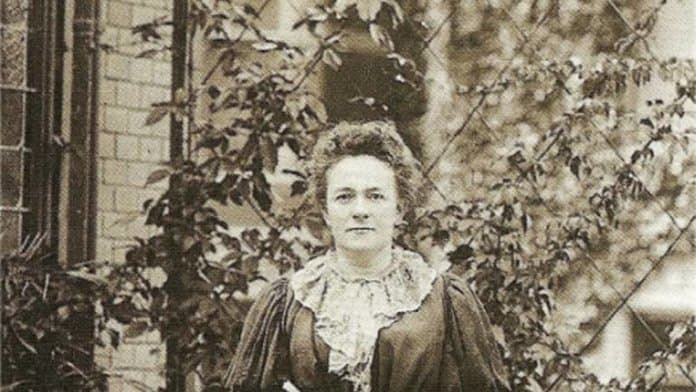In the olden days, people used to say we live in a man’s world. However, this is seldom spoken today and even false. For without a woman’s touch, man would have a more chaotic world. Some of the most inspiring women stand as examples to people. Be that as rulers throughout history, or as activists, and political figures, that shaped the course of the future.
To honor this particular day, I would like to touch upon one such person. Her achievements stand as a testament to all that women represent. After all, it is thanks to her that we celebrate this day. To this day, I haven’t delved into history on Fiction Talk, even though it is one of my favorite subjects. So this is a perfect opportunity to revisit and write about the life and contribution of Clara Zetkin.
The History Behind The Revolutionary
Clara Zetkin, née Eissner, was born in 1857 in Wiederau, in the then German Confederation. She would quickly move to Leipzig in 1872, to study at Leipzig Teachers’ College for Women. It was around this period she came in contact with the SPD, aka the Social Democratic Party of Germany. While she started her political career then, it was short-lived due to Bismarck’s ban of social activity in the state in 1878. She would then proceed to France, where she would continue her education as a journalist and translator, as well as her political stand.
It was around this period she would marry Ossip Zetkin, a devoted fellow Marxist, who really upstarted her place in politics, most famously the fight for women’s rights. She would first become the head editor of the SPD newspaper for women. It was through this she was able to mount up the Social-Democratic Women’s Movement in her home country.
Through her studies as a teacher, she would gain many allies and connections that would ensure her a spot in the now reformed SPD, where she would remain until 1917. It was not long after she was in charge of the early mentioned SPD’s newspaper, Equality. Which in 1907, due to its popularity, enabled her to found the Woman’s Office in the party.
As the First World War raged on, Clara Zetkin found herself as a member of the first-ever International Socialist Women’s Conference, which was heavily publicized through Equality. For that, she was appointed Secretary of the organization and found herself mounting a second conference in 1910. She would organize the third one in 1915, in Berlin, but was detained due to her anti-war activism.
Later she would be part of the KPD, aka the Communist Party of Germany, where she would remain in the central committee. Her fight for women’s rights would continue. Most notably with the International Conference of Communist Women, which was held in Moscow. In 1932, she would become chairwomen of the Reichstag, where she opposed fascism and Hitler’s upcoming regime. After Hitler’s party took over, the KPD disbanded, and she was exiled, spending her final days in the Soviet Union.
Her Significance
So after a brief read of the history behind the woman, we delve into all of her more celebrated achievements. As said before, her political prominence began with her inclusion into the SPD as the editor for the newspaper, and the formation of the Woman’s Office. She was also one of the driving forces that lead to the International Socialist Women’s Conference in Germany. Along with other delegates, she proposed the creation of the now annual Women’s Day. Yet as of 1910, no date was confirmed. It was in 1911 that the day was specified to be 19th of March. She, alongside her fellow colleges, would demand that they be given the right to vote and to hold public office.
However, her roots were closer to that of socialism, even when viewing feminism. Most notably, her view on the concept of “bourgeois feminism.” She stated it was concerned with only upper and middle-class women, and not the interests of the working class. She regarded the following:
“The working women, who aspire to social equality, expect nothing for their emancipation from the bourgeois women’s movement, which allegedly fights for the rights of women. That edifice is built on sand and has no real basis. Working women are absolutely convinced that the question of the emancipation of women is not an isolated question which exists in itself, but part of the great social question. They realize perfectly clear that this question can never be solved in contemporary society, but only after a complete social transformation.”
For her, the only way women were ultimately free from oppression was through socialism. One in which through participation in various unions and organizations, would improve their own conditions. Her review of the marriage was the forerunner of the feminist worldview. She thought that it should be set on the basis of equality, which meant equal role in the education of children. None of the stereotypes could be a justification for women who have suppressed career over family.
However, the original date would not stick long. Along with her party and movement, she would push the change of the date. In 1914, Germany celebrated IDW, for the first time on the 8th of March, with Zetkin’s party regarding the importance of voting fairness. Women would officially be given the right to vote in 1918.
Later, through her ties to the Communist Party of Germany, she would continue to spread the fight for women’s rights. This time, acting as a leading member of the Communist Women Movement. It is with the party and the movement that at the International Conference of Communist Women, she spoke of women’s suffrage, equal pay for both sexes and divorce rights. She would even interview Lenin on the matter. However, due to the rise of fascism, she switched her attention for the time being. Later she would be awarded the Order of Lenin, and the Order of the Red Banner, for her service. As well as her ongoing activism towards women’s rights.
There are more in-depth details of the life of Clara Zetkin in her bibliography but I just wanted to cover the essential parts. Without many knowing it, Clara Zetkin planted a seed that turned from a socialist and communist political view to a fight for the equal rights of women. It is because of her that this day is celebrated. Yet while many see it as a holiday, few know it started as a rebellion and revolution.
While she would influence both Soviet Russia and Germany with her view, it would be recognized worldwide years after her passing. It is a legacy worth knowing and remembering. A fight that still marches on to this day, its significance should not be diminished. I show respect and homage to not just Clara, but all who share this goal and ideal. So, for all the important women in my life, and out there in the world, Happy International Women’s Day.
- The Importance of Clara Zetkin for International Women’s Day - March 8, 2020
- Tatsuro Yamashita aka The King of City Pop - March 1, 2020
- Samurai Jack: Battle Through Time Announced for 2020 - February 25, 2020



